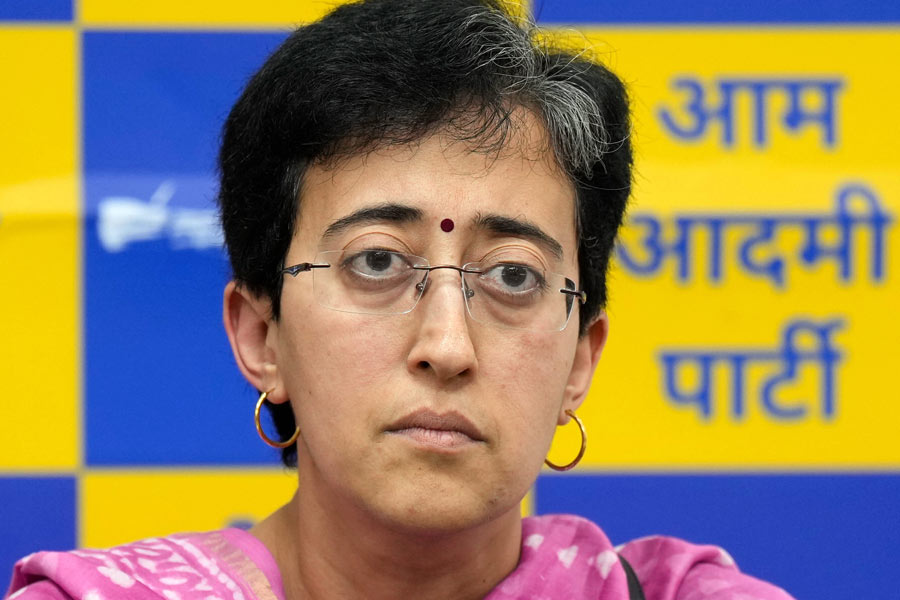Book: Opinions: A Decade of Arguments, Criticism, and Minding Other People's Business
Author: Roxane Gay
Published by: Corsair
Price: Rs 799
Opinions — forming and sharing them — are ways in which humans process information. They may lead us to ignorance or bring us closer to true knowledge, as the Greek philosopher, Plato, believed. By this distinction, Roxane Gay’s second collection of essays is not simply a matter of opinion but an exercise in reason. Gay, of the Bad Feminist fame, engages with the world around her in an informed and perceptive way. Originally published in The New York Times, The Guardian, Harper’s Bazaar, among other publications, the essays, spanning from 2014-2023, focus on politics, art, identity and the way all three intersect in the United States of America.
In a world where people often use the word, ‘opinionated’, as an insult, Gay owns her thoughts, puts her feet down, and keeps her head up, as she traces the misplaced responsibilities of her country. Targeting the lack of political accountability and turning to the promise of civic duty, she writes that directed anger can be productive and, so, it must be used. In writing about identity politics, Gay is conscious of the tangible and the intangible aspects of identity. She acknowledges that we live in a world where identity extends beyond one’s race, gender, sexuality or language to include modern-day markers, such as internet presence. Calling the internet “an open-air bazaar for sharing opinions”, she counts its vices as it becomes a medium of empty but loud speculations. The internet, however, is often an expression of identity or people’s solidarity with others’ identity. The real problems, Gay’s essays suggest, are far more structural — racial response to crime (and reform), rising gun violence, lack of safe spaces, political indifference, hate crimes, sexual violence, “retraction of civil rights”, such as body autonomy, dishonouring Black lives, the list goes on. “These are desperately uncivil times,” she writes. The internet is but a reflection of these social realities.
In addition to confronting the socio-political realities of her country, Gay has composed a series of essays on cultural subjects proving that her range as a writer is much wider. She interviews Madonna (on the politics of her art), singer-songwriter, Nicki Minaj, and other artists, filmmakers and actors. She also reviews The Fast and the Furious franchise, Jodi Picoult’s Small Great Things, the new Netflix documentary, Pamela: A Love Story, and other films and books.
She writes about beaches, the theory of summer, food shows, the famous art versus the artist debate, the legacy of Toni Morrison, and on boycotting Oscars for “Hollywood’s race problem”. She also reflects on the cultural position of men in our society. Here too, Gay writes on a continuum, where, on one end, she wonders about the paucity of gifts celebrating men/ fathers as opposed to women/ mothers in the market and, on the other, she calls out the defensive response of men on sexual assaults on women that comes from a “luxury of oblivion” and expects them “to start answering for themselves because women cannot possibly solve this problem they had no hand in creating.”
Although Gay’s writing engages with the public, the final section of the book that features her advice columns from The New York Times is particularly refreshing. As she passes “solicited” advice on whether it is too late to follow one’s dreams, on creating space for activism between ordinary, everyday concerns, and on waiting tiresomely for the love of one’s life, she turns discourse into dialogue.
Like any other collection of essays, the contents of Gay’s Opinions too are extensive but not exhaustive. What is worth noting is that while some topics — racism, gender politics and so on — are recurrent, other, equally relevant (and recent), issues like the pandemic, its deaths and the vaccination controversies do not find a place in the book (except for one or two mentions). The repetition, perhaps, is the result of the consistency of discriminatory issues outside the book and the fact that their relevance (and to some extent, urgency) has only multiplied over the last decade. “Writing about race can feel repetitive, but then, racism is repetitive… and while writing feels like a profoundly inadequate response, it’s what I know best,” she confesses herself.










